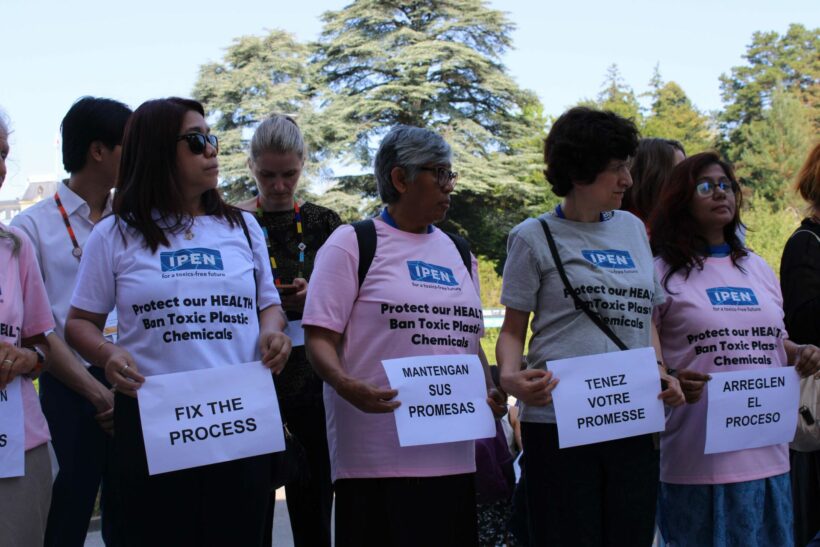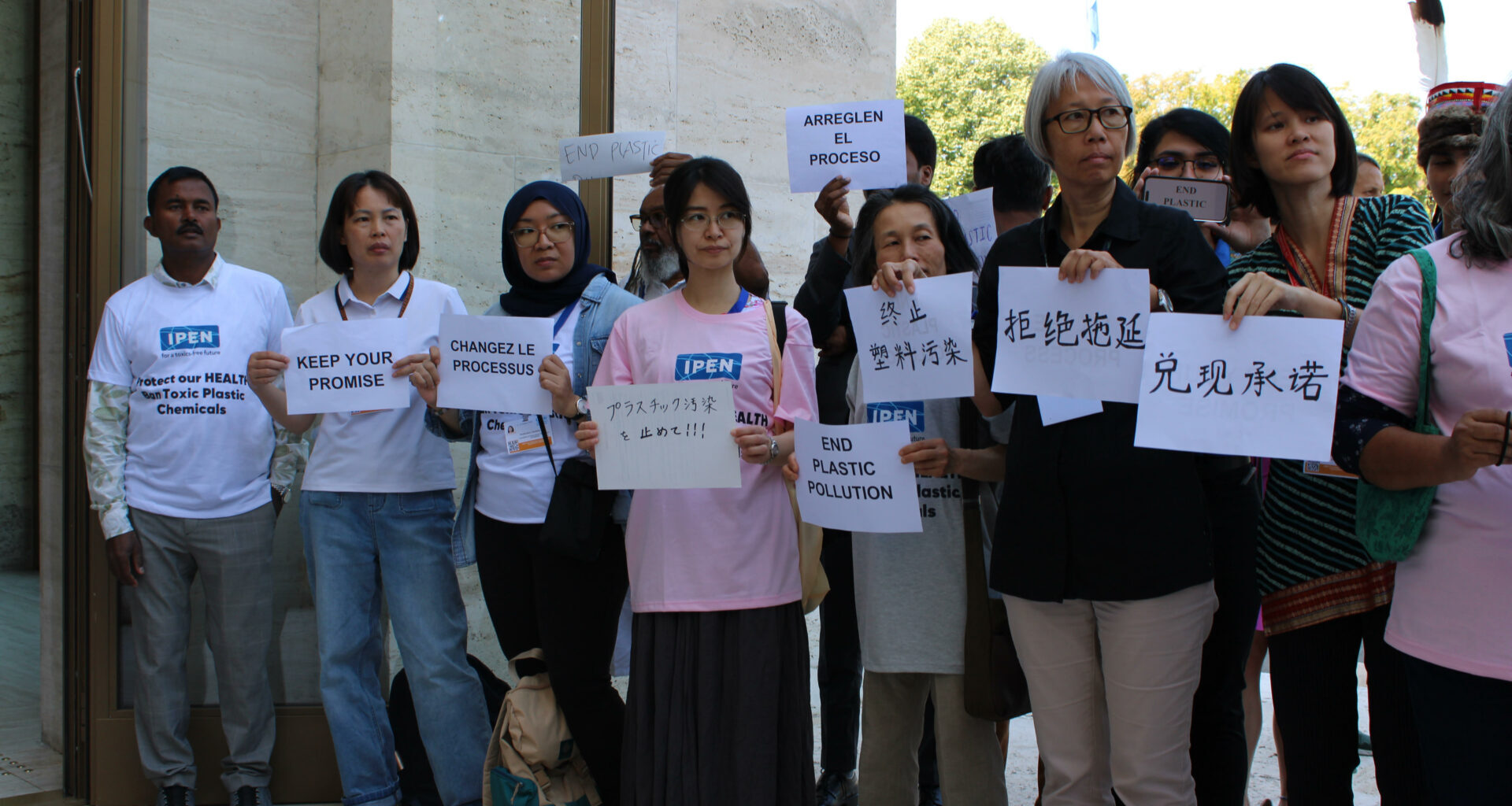Negotiators are Trading Away our Health and our Future Generations in Favour of an Easy Path to a Weak Treaty
11 August 2025, Geneva, Switzerland – The negotiation towards a global plastics treaty to end plastic pollution reaches a point of no return this week. With only three days left, we, civil society organisations in Southeast Asia, commend our leaders who stand for ambition and courage, and remind the others what is at stake – our peoples’ health and our environment.
Leaders from 178 countries are gathered in Geneva, Switzerland, and their decisions will determine whether our babies will continue being born with microplastics, into a planet choked with plastic waste, or whether we as a global community can sustain a safer and cleaner Earth for future generations.
In Geneva, we now have a draft blueprint for addressing the plastic crisis.
“As the negotiations almost reach the final stage, we urge delegates to remember the mandate: to end plastic pollution and protect human health and the environment, throughout the full life cycle of plastics,” said Yuyun Ismawati, co-founder of Nexus3 Foundation and member of the Alliance for Zero Waste Indonesia. “We cannot continue the unsustainable plastic production and consumption. Limiting plastic production, controlling toxic chemicals, and reducing subsidies for plastic producers are the only ways to meet this goal.”
Some Southeast Asian countries have shown remarkable ambition and courage, with proposals pushing to reduce plastic production, eliminate toxic chemicals, increase transparency and traceability of chemicals, and promote toxic-free reuse, refill, repair, and plastic reduction-enabling systems. These ambitions await further support.
More than 100 countries have said a global limit on the overproduction of plastic is essential to reducing all the harm plastics cause. More than 1,100 scientists backed this statement.
“We call on the negotiators to be empathetic and to prioritise the long-term interests of the entire region above the narrow interests of the petrochemical and plastics industries. We urge them not to trade off the environment for short-term economic gain – think about our future generations, the impact of climate change on vulnerable groups, and the urgent need for sustainable production and consumption,” stated Xuan Quach, Country Director of Pacific Environment Vietnam.
Despite this broad consensus, major petrostates and 234 petrochemical and fossil fuel industry representatives are lobbying heavily, with vested interests in stalling negotiations and securing a weak treaty focused solely on waste management.
The same tactics have played out across five rounds of negotiations already, and are now being replicated at the sixth. This strategy has clearly failed to solve the problem. Developed countries lauded for good waste management practices are often also large exporters of plastic waste that overwhelm developing countries.
Aileen Lucero, National Coordinator of the Ecowaste Coalition, the Philippines, reiterated, “We appeal to all government negotiators to seize the moment, block corporate lobbyists from hijacking the negotiation, uphold human rights, and provide robust financing and compliance mechanisms to ensure effective implementation.”
Punyathorn Jeungsmarn, plastics campaigner and researcher from the Environmental Justice Foundation (EJF) says, “Southeast Asia stands at a crossroads. If plastic production grows unchecked, we will see more petrochemical facilities that poison the water and the air. We will see more plastic waste flowing into our region, and more microplastics and chemicals in our blood and bodies. The plastics treaty must set a target for reducing plastic production, or risk becoming a false solutions treaty.”
We also see low ambition in Southeast Asia, including disregarding how plastic harms us from production to use and disposal, and insisting on not having a global target to reach sustainable plastic production or global rules that can better guide business decisions. We witness campaigns promoting false solutions to tackle plastic waste problems in the region.
“Without global controls, managing the inherent, pervasive and transboundary nature of plastics and chemicals is almost impossible. National measures varying from one country to another will affect the management of plastic circularity. We call on our countries to include binding global standards for an effective plastic treaty”, said Wong Si Peng, Events and Projects Officer from C4 Center in Malaysia.

For more information, please contact:
Yuyun Ismawati, +44-7583 768707, yuyun@nexus3foundation.org (Indonesia)
Xuan Quach, quachthixuan@gmail.com (Vietnam)
Aileen Lucero, +639178369592, alucero@ecowastecoalition.org (Philippines)
Wong Si Peng, +6012-278 3533, sipeng@c4center.org (Malaysia)
Punyathorn Jeungsmarn, +66-9098 16336, punyathorn.j@ejfoundation.org (Thailand)
